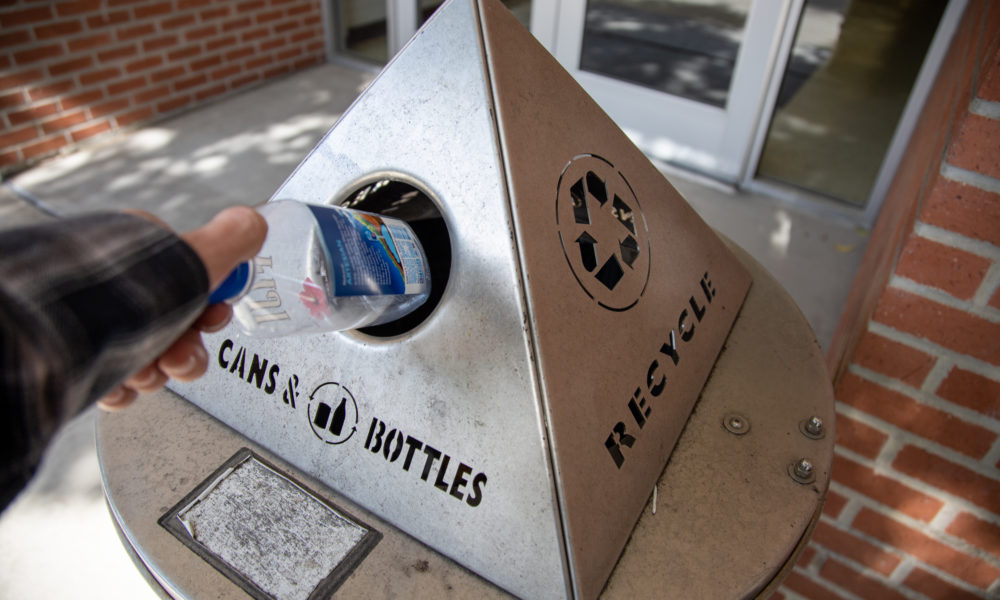Long Beach State, along with the other 22 California State University campuses, plan to pass a policy that will diminish single-use plastic by March.
The policy looks to introduce recycled items to eliminate single-use plastic such as cutlery, electronics, cleaning supplies and others.
“We want to preserve trees, and water, and our planet,” said Malia Freund, assistant vice president of financial management. “So, basically from a procurement standpoint, I would say [sustainability is] something that has continuous life.”
In early 2019, under Policy 5236, the campus banned plastic straws and bags. By 2023, it is projected that all plastic water bottles will be replaced with something more sustainable.
“We’re going to ban any plastic cutlery, anything plastic,” Freund said. “It’s coming.”
Freund and Tom Johnson, director of procurement at California State University, Los Angeles, spoke on behalf of the State of California when writing and presenting the policies to the CSU Office of the Chancellor.
Although the regulations are in place, students may still find straws around campus. Under California law, restaurants need to remain compliant to the Americans with Disabilities Act and keep straws accessible.
Freund monitors campus purchases and helps write the policy in order to hold people accountable when they buy something that’s not sustainable.
Although recycling is encouraged on campus, plastic cutlery and other items aren’t compliant yet.
“Plastic is convenient, but one of the worst things we’ve done,” Keeanu Bruncker, an information and technology major said. “It has a high impact on the environment and it’s terrible.”
The goal in the meantime is to reduce single-use water bottles by 25%. Currently, the Coca-Cola Company has a contract that supplies Dasani water on campus, however, the contract is over in August of 2021, according to Freund. The procurement office is in the process of finding alternatives to single-use bottles from Coca-Cola.
Some students said that recycling isn’t a final solution.
“Recycling is a hoax,” Diana Marin, a human services major said. “The recyclers don’t properly separate the waste and recyclable food.”
Freund is more optimistic.
“I don’t think it’s a hoax, we’re just not there yet,” Freund said. “There’s not enough businesses that’ll support it yet, but companies are waking up realizing ‘OK we have to spend a little more money’ and they’re OK with that, our CSU is OK with that.”
According to the National Conference of State Legislatures, more than 95 bills were proposed in 2019 to either ban or add a fee to plastic bags.
California remains one of the more progressive states in plastic by limiting and taxing plastic bags, one of which is California’s Assembly Bill 1080 that seeks to cut out all single-use products by 75% by 2030. Only seven other states established a ban.
Accountability, Freund said, is difficult to ensure the policies are enforced. She said she has systems in place now that requires every department on campus to go through a website that will show the appropriate items that can be purchased.
One program she uses is the Sustainability Tracking Assessment and Rating System which displays how eco-friendly the products are.
“You can create all these wonderful policies, but unless you track it and you can see where you started and where you’re going, and are you staying on track then we get nowhere,” Freund said.





Pingback: Single-use plastics will soon leave Long Beach State, it’s about time